Today I’m sharing an excerpt from a new old-fashioned pamphlet I’ve been working on. I am — through family, work, and community —surrounded by a mix of young men who are struggling and seeking life advice. Chances are you have boys and young men in your life and know exactly, first hand, what I’m talking about.
As most advice is, these words are as much for myself as they are for my young friends. I’ve been writing, sorting, and collecting “songs to myself” like this for over 40 years. I know advice is easier to give than it is to take. I work to make it interesting in a way that might penetrate the malaise.
Young men today are struggling—not against hardship, but against hollowness. They are adrift in a world that demands nothing in particular of them, yet judges them all the same. In their company, it seems to me they are waiting. Waiting for someone to need them, for something to matter, for life to demand more than scrolling and surviving.
The struggle of boys and young men today is no longer just a cultural concern—it’s a statistical crisis. In Canada, boys are 30% less likely than girls to graduate from university. Men now account for nearly 80% of all opioid deaths and more than 75% of suicides. Young men are more likely to be disengaged from work, school, and civic life than any generation before them. Behind the slogans of empowerment and progress, an entire generation of boys is quietly failing.
In the last year, several books, new statistical data, documentaries, and public intellectuals have drawn attention to the struggles of young men. They make the clear intersectional point that solving many of the issues still facing girls and young women are, at heart, about making better men. Most of the books and discussions are about what WE can do to help boys and young men. And that I think is where things go wrong. We need to allow boys and young men to help themselves.
I’d be grateful if you let me know what you think about this, or maybe what it makes you think of.
A Note on This First Chapter
What follows is propaganda. That’s not an apology—it’s a classification. This is not clickbait, commentary, or marketing. It is propaganda in the classical sense: the purposeful spread of ideas meant to inspire, unify, and instruct. Today, the word carries a bitter taste, a relic of regimes and manipulations past. But in an age of disorientation, irony, and ceaseless distraction, it may be exactly what we need—something that speaks plainly, with heart and hope, about who we are and what we’re trying to become.
This first chapter of The New Canadian is written in a vintage tone on purpose. Not out of nostalgia, but clarity. It aims to simplify some things that have become needlessly complicated: citizenship, responsibility, identity, effort. In the spirit of rebuilding—not from bombed cities but from spiritual drift—it invites readers to rediscover the quiet strength of purpose.
May it be read not as a sermon or a scolding, but as a kind of FIELD GUIDE for those who wish to do something noble with their freedom and share ideas with others, particularly young people who’ve given up on thinking or believing anything about themselves, their purpose, or their country. Let the work begin.
THE NEW CANADIAN
A Citizen's Handbook for Building the Nation of Tomorrow
Issued in the Spirit of National Renewal and Public Service
Citizens of Canada, from the windswept rock of Newfoundland to the wide skies of the Prairies, from the northern outposts to the bustling cities along the border—our country once again calls upon its people. Not for war, but for wisdom. Not for sacrifice, but for service. Not to rebuild from ruins, but to build forward—toward a nation more noble, neighbourly, and free.
In the aftermath of war, a nation often finds itself in reflection. And though the guns have long fallen silent and the flags flutter peacefully in the breeze, there remains a different kind of battle—a quiet campaign for the soul of the country.
That campaign is civic. Moral. Practical. And it begins with character.
We live in a time where institutions tremble, where trust has eroded, and where many Canadians—young and old—find themselves asking: What kind of people are we meant to be now?
This personal handbook offers you an answer.
The New Canadian is not a temporal status. Not a slogan. Not a checkbox or a marketing campaign.
It is a character type—a model citizen for a new era. The kind of person a healthy democracy requires: resilient, resourceful, responsible. One who carries their weight at home, contributes to their community, and acts with quiet honour in public life. One who lives not only for themselves, but for something greater.
What a New Canadian Believes
A New Canadian believes in themselves, in the basic goodness of others, and in the enduring value of the institutions that have carried us this far. They believe the world is still rich with opportunity and promise—not because it is free of evil or confusion, but because they are undaunted by it. They understand that challenges to our capacity for understanding are not threats, but invitations—to grow wiser, kinder, and more capable of building a future worth inheriting.
Proper Use of This Manual
This book is a field guide. It provides practical, portable, and accessible knowledge to help a person navigate, understand, and act effectively in a civic environment or situation. Keep it on hand on all occasions and share freely its contents.
This book is not a political program. It is a field manual for the moral, spiritual, and practical rebuilding of the country.
Herein you will find 21 brief chapters—each a principle, trait, or habit—that form the pattern of The New Canadian. These are drawn not from fashion, but from proven tradition: from service, family, work, and faith. From memory and meaning. From grit and grace.
This book is meant to be searched, studied, and shared. It is for anyone who asks more of themselves than the world asks of them. It is for citizens who no longer wish to be spectators of decline but builders of the good.
We do not promise fame, fortune, or ease. We offer something rarer: the chance to be useful. To live with dignity. And to hand off a country—whole and worthy—to those who will inherit it.
This is the spirit of The New Canadian.
Let the work begin.
—Issued under authority for use in the Dominion of Canada
THE DOMINION OF CANADA
In this book, you will often read the term “Dominion of Canada.” It is not an accident, nor a flourish of style. It is a deliberate invocation of a founding ideal. It should be recognized as a unique source of national pride.
Throughout this guide, the term Dominion is used for this noble purpose: to name a country not simply as a place, but as a project of shared purpose. It was first used at the birth of Canadian Confederation in 1867, chosen in part to reflect Canada’s self-governing status.
Unlike "Kingdom" or "Republic," the word Dominion conveys both sovereignty and stewardship—a place governed not only by laws, but by the moral commitments of its people.
To speak of the Dominion, then, is to remember that Canada was always meant to be more than a market or a map. It is not a convenience but a spiritual building, a work of many hands. It was—and remains—a living covenant among citizens. A place where freedom, duty, humility, and mutual service were understood as national virtues.
Why revive the term today?
Because Dominion suggests that Canada was never just a geography or bureaucracy—but a project. A dominion is something to be stewarded, not just lived in. It implies a sacred trust between citizens and country: a covenant of care, duty, and shared purpose.
The Dominion of Canada is a call to action.
It reminds us that citizenship is a task. That personal responsibility is the price of peace. And that a country is only as strong as the character of the people who claim it.
The Dominion lives wherever Canadians choose to build, serve, and belong.
CHAPTER ONE: BEGIN WITH PURPOSE
Issued for the Instruction of Citizenship in the Dominion of Canada
“Intelligence - the central virtue of moral life - is being able to judge the limitations of knowledge. Though there is no substitute for intelligence, it is not enough. People may be intelligent but lack the courage to act. To find a purpose to life, one must be willing to act, to put excellence in one's work and concern for what is right before personal safety.
No professional man has the right to prefer his own personal peace to the happiness of mankind; his place and duty are to be in the frontline of struggling men, not in the unperturbed rank of those who keep themselves aloof from life. If a profession is to have its proper place in the further development of society, it must be increasingly dissatisfied with things the way they are. If there is to be any exaltation in our work, we must learn to reach out, not to struggle for that which is just beyond, but to grasp at the result which seems almost infinite. – Adm. H.G. Rickover
As Robert Browning wrote "Ah, but a man's reach should exceed his grasp, or what’s heaven for."”
Across this vast Dominion—where the hemlock meets the snow, and the steel mills rise beside the wheat fields—there walks a new kind of citizen. Not louder than others. Not richer. Not more educated, necessarily. But aware.
He or she wakes each day not with dread, nor in confusion, but with a sense of purpose—as firm and deliberate as the morning train.
And from that foundation, they begin.
Purpose Is the Starting Line of All Citizenship
Let it be said clearly: the first duty of a citizen is not to complain, nor to consume—but to decide what their life is for. In all matters large and small, each among us must be steadfastly decided in what they are trying to achieve. And each of us should be able to state this purpose clearly. Without this decision, a man may become competent, even accomplished—but never great. For greatness requires aim.
In Admiral Rickover’s landmark address, Thoughts on a Man’s Purpose in Life, he warns of a creeping national danger—not foreign invasion, but personal mediocrity. A quiet erosion of standards. A failure to question the purpose of one's existence. And in this failure, he says, lies the seed of national decay.
“Mediocrity can destroy us just as surely as perils far more famous.”
Purpose is not a slogan. It is a way of life. It is the habit of asking, before every task: “Why am I doing this?” And answering: “Because it serves something greater than me.”
The Enemy Is Not Chaos—It Is Comfort Without Meaning
The New Canadian faces not bombs or battlefields, but the insidious pull of comfort without duty.
In peacetime, Rickover observed, men become complacent. They confuse ease with progress. They avoid hard truths and embrace convenience.
The enemy is any man whose only concern about the world is that it stay in one piece during his own lifetime. He is invariably successful and regards his good fortune not as a challenge to get close to the real problems of the age, but as proof of the correctness of everything he does. Nothing to him is less important than the shape of things to come or the needs of the next generation. Talk of the legacy of the past or of human destiny leaves him cold. Historically, he is a disconnected man. He is an enemy because he is detached from the kind of concern for the rights of unborn legions that will enable the world itself to become connected and whole.
This is the true enemy. Not failure—but the refusal to aim higher
To struggle against these enemies, and against apathy and mediocrity, is to find the purpose of life.
James Cambon said: "We have to defend the country against mediocrity: Mediocrity of soul, mediocrity of ideas, mediocrity of action. We must also fight against it in ourselves."
Be Forewarned: It is a lonely and hard thing to speak out against mediocrity or the evils of the system. One feels the frustration which arises only in those who are compelled to act. The detached spectator does not feel this helplessness because he never tries to surmount the problems that exist.
Purpose Is the Foundation of Strength and Courage
The New Canadian begins each day with a reason. It may not be glorious. It may not make headlines. But it is chosen—and therefore it is powerful.
Whether farming a field, repairing a roof, teaching a child, or raising a family—a task done with purpose is a civic act.
A free nation depends on the disciplined pursuit of excellence by its citizens. Not brilliance. Not genius. But effort, applied with meaning.
A certain measure of courage in the private citizen is necessary to the good conduct of the State. Otherwise men who have power through riches, intrigue, or office will administer the State at will and ultimately to their private advantage. For the citizen, this courage means a frank exposition of a problem and a decrying of the excess of power. It takes courage to do this, for in our polite society frank speech is discouraged. But when this attitude relates to questions involving the welfare or survival of the Nation, it is singularly unfitting to remain evasive. It is not only possible, but in fact the duty of everyone to state precisely what knowledge and conscience compel them to say. Only complete candor and frankness, deep respect for the facts, however unpleasant and uncomfortable, great efforts to know them where they are not readily available and drawing conclusions guided by rigorous logic can bring many of today’s problems forward.
Begin Where You Are. Serve What You Can. Your Capacity for Effort is Much Greater than You Imagine it is.
Purpose need not be grand. It need only be real. You may not reform Parliament, but you can run a household with honour. You may not lead armies, but you can lead your children with patience. You may not shape the economy, but you can show up on time, do your work well, and sign your name with pride.
The New Canadian does not wait for a crisis to matter. He or she begins with the work already at hand.
"We measure ourselves by many standards," said William James, over a century ago. "Our strength and our intelligence, our wealth and even our good luck, are things which warm our heart and make us feel a match for life. But deeper than all such things, and able to suffice unto itself without them, is the sense of the amount of effort which we can put forth." There are times in life we must prove to ourselves our true capacity for effort. It is so much greater than we think it is. The New Canadian works to explore their capacity for effort.
The Guy Who Cleared the Sidewalk Anyway
There was a feeling that came over Dan as he finished shoveling his walk and the sidewalk in front of his house. The crisp air—sunny, cold, and still—made the snow seem light, and left alone in the early morning with his thoughts, the work went fast. They called it a storm day, his appointments had been cancelled, and he had the whole day ahead.
“I’ll just keep going a little further,” he only half-thought. “I know that Milo (the older retired woman who lives alone next door) would have a safer day if her walk was cleared.” But that work went fast too. On Dan’s street, each home had about ten metres of sidewalk frontage.
So he continued on, thinking of each neighbour as he went. Some he knew well. Some he only knew the name of their kids or their dog. A few not at all. And a couple—if he was being honest—he didn’t like much. But on he went, in the fine early morning.
By the time he felt hunger for breakfast—well, almost lunch by then—he had cleared the whole block. Every house length made him feel better and stronger. As he walked back, he saw Milo in her big coat getting her old dog on her lead. Rather than stop with his shovel, he hurried by before she noticed him and put the shovel away out of sight on the porch.
Sunshine. Crisp white snow sparkling. His breath in the cold still air.
As he headed in for some food he smiled to himself as he felt the muscles in his arms and shoulders.
This wasn’t a regular day at the office.
It was a great day.
Purpose Makes Us Whole
It is tempting, in modern life, to separate the soul from the schedule. To believe that what we do from nine to five has no bearing on who we are. But this is folly. Life is a unified act. The purpose of one’s life must govern all its parts—or none at all.
The New Canadian does not divide public from private, values from labour. They live as one person, with one purpose—carried consistently across every domain.
The New Canadian begins with purpose—not as theory, but as posture. As practice. As the quiet, daily rejection of mediocrity—and the solemn, joyful choice to matter.
Why was snow shoveling better than a day at the office for Dan?
On this day, Dan did something that mattered—quietly, completely, and without needing permission or praise.
There were no meetings. No metrics. No emails to manage. No management at all. Just one small, clear task after another, adding up to something real. He could see the work, and it was indistinguishable from play. He could feel it in his body. And know, without a doubt, that he’d made the world—not the whole thing, just his street—a bit more livable.
No abstractions. No reports. Just snow moved, steps cleared, neighbours helped.
Unlike the office, where success often feels distant and filtered through layers of process, this was direct. Honest. Tangible. There was no performance in it. No pretending. Just effort meeting purpose in the cold, bright morning.
That’s why it was a great day.
Why Didn’t Dan Stop To Talk To Milo?
Dan didn’t stop to talk to Milo because something in him—quiet, instinctive—told him not to. Not out of shyness, or false modesty, or even fear of being thanked. It was something older than all that.
What it told him, in the way such things do, was this:
Let her think it was the wind. Let her dog’s paws find the path without needing to know who cleared it. Let the help be ordinary, not heroic. Let it be part of how the world works when no one’s watching.
Dan didn’t want a conversation. He didn’t need acknowledgment. He didn’t want to place her in the position of owing him anything. That would cheapen the whole thing.
He just wanted her to have a safe walk.
And maybe for one small stretch of sidewalk in this world to be a little better than it was when he found it.
That's what the quiet voice told him. And that was enough.
Stand to your post, citizen.
Our conscience should never release us from concern for the problems of the day. Our minds must be forever skeptical yet questioning. We must strive to be singularly free from that failing so common to man, deplored by Pascal in the "Pense'es," of filling our leisure with meaningless distractions so as to preclude the necessity of thought. To be an intellectual in the fullest sense, one's mind must be in constant movement.
So Choose. And Begin.
You do not need to know the entire path. But you must take the first step.
What will you serve? Who will benefit from your life? What standard will you uphold—not because it is required, but because it is right?
Choose. Commit. Begin.


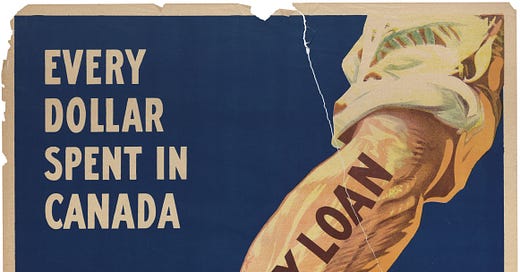




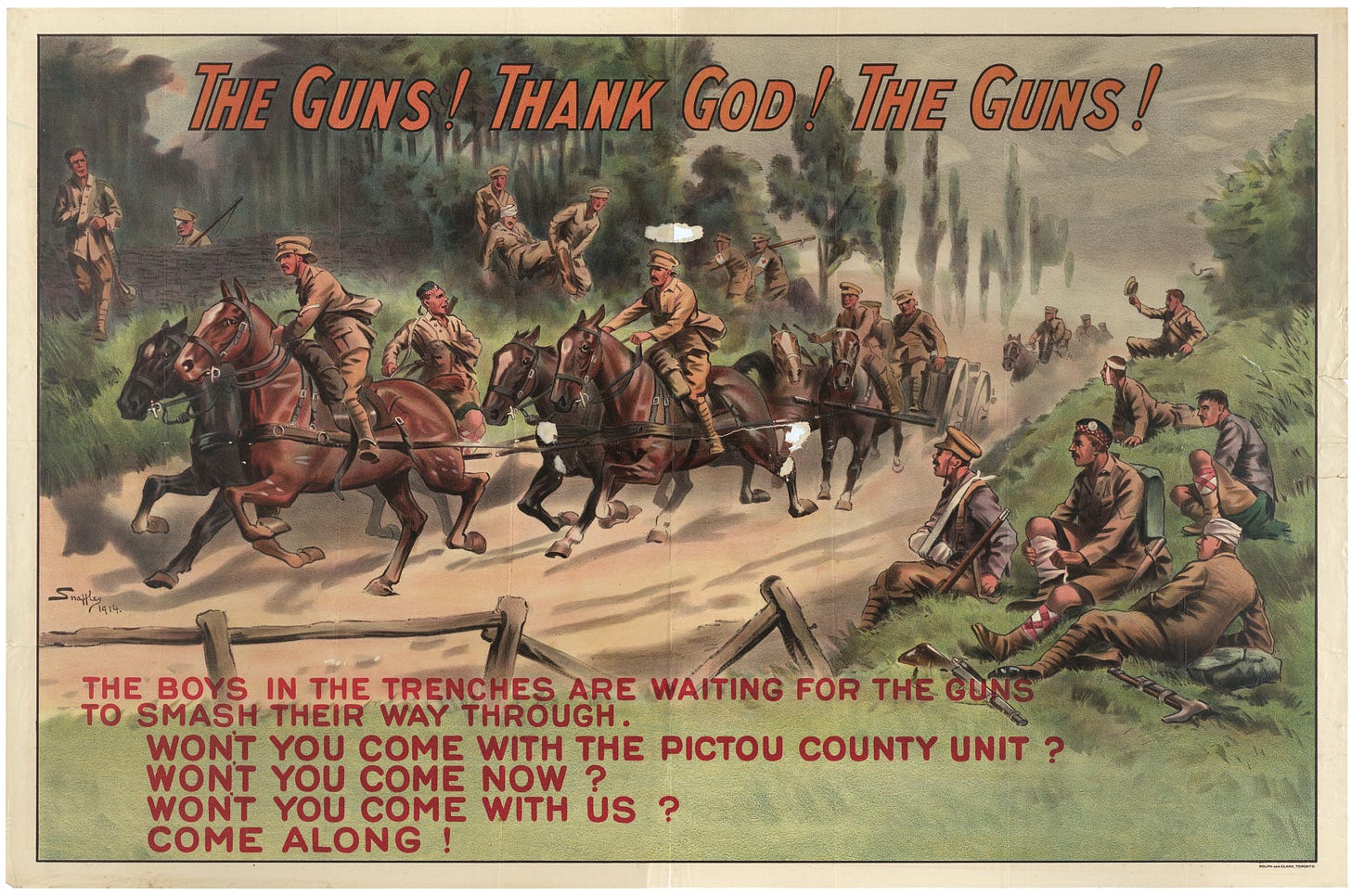
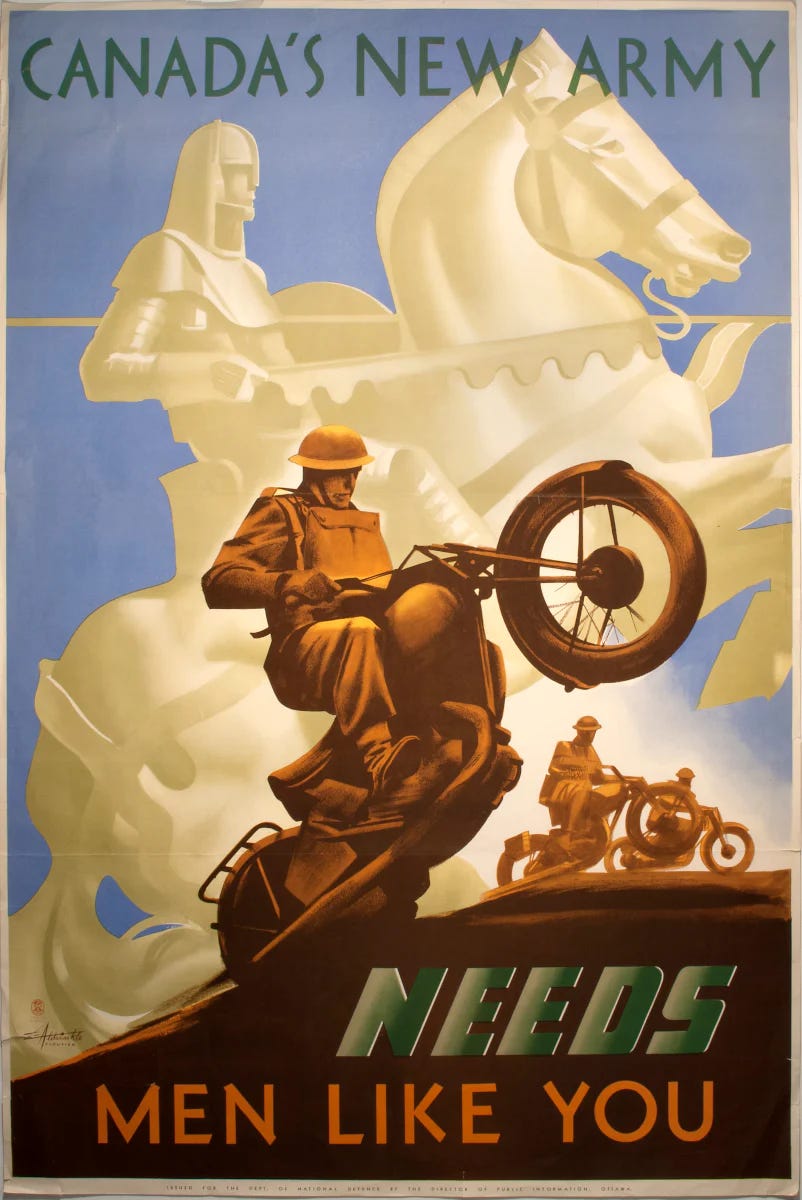

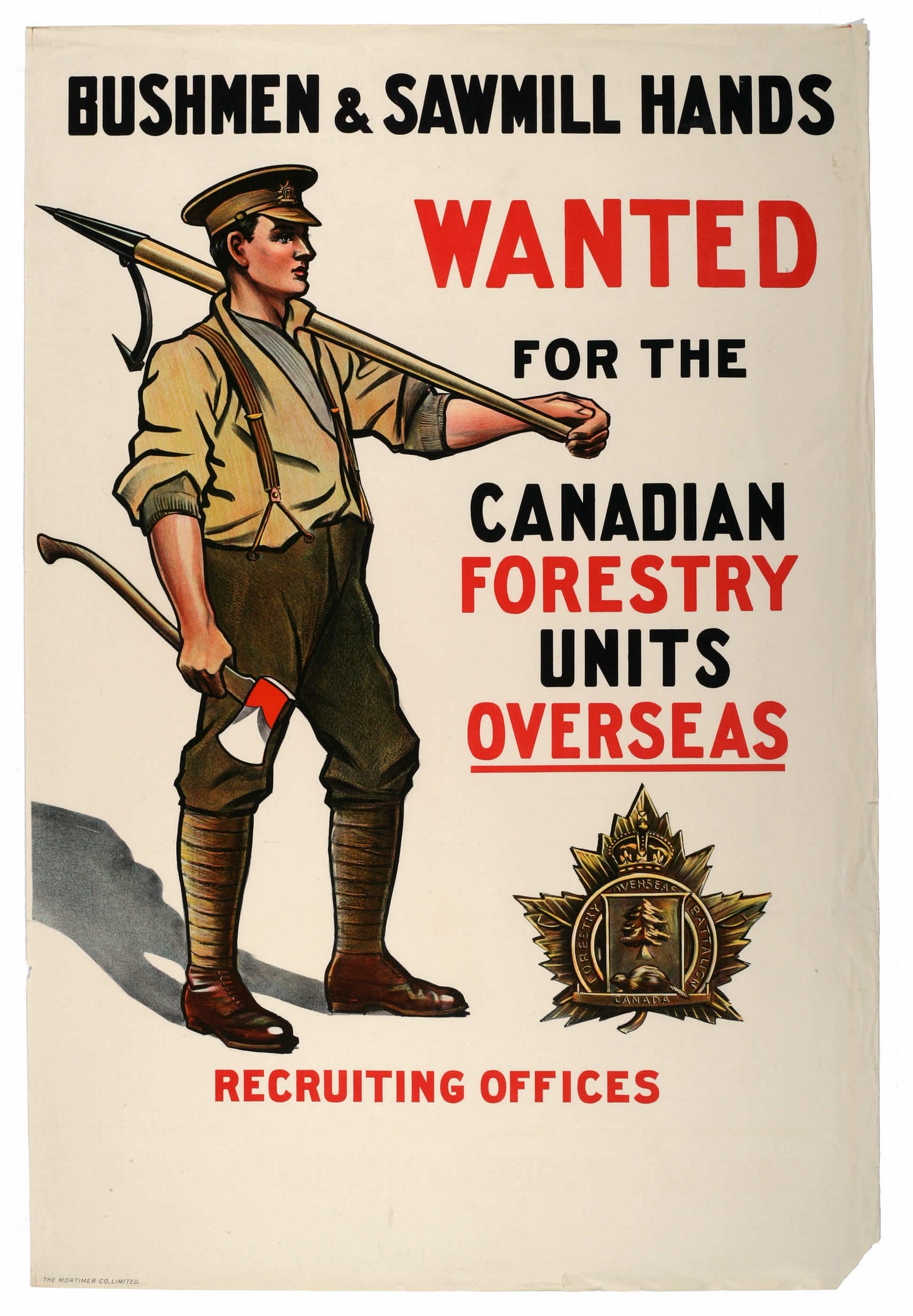
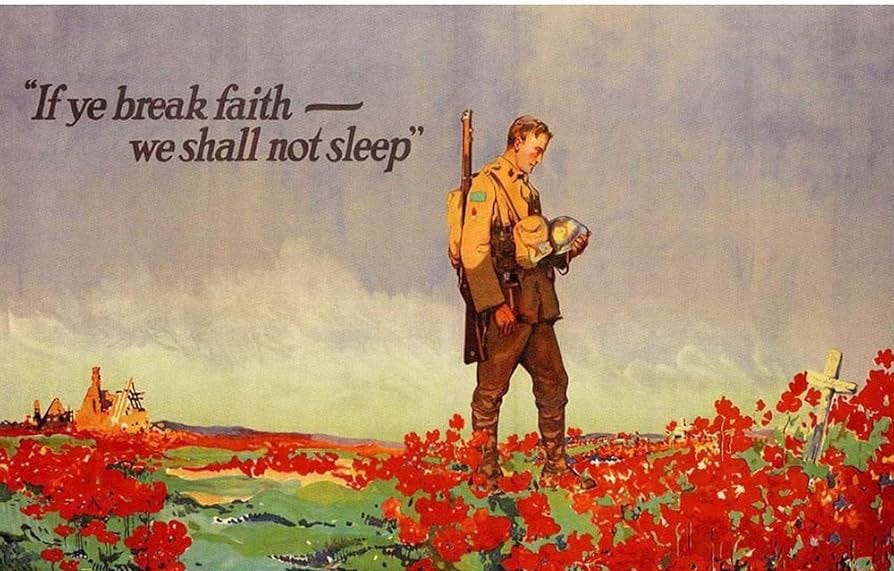
There is definitely a ‘purposelessness’ problem that is an issue particularly for young men. Our unemployment rate is going to spike in the coming months as the auto sector takes a major hit along with steel and aluminum due to Trump’s tariffs.
In the 1930s the solution for a surplus of young men with not much to do were public works projects, and I think we should look that way again. Carney has a very aggressive home building plan similar to what was undertaken post WWII, and that will help, but there are also a ton of public works projects that need attention, many related to hardening our public infrastructure. Here in Nova Scotia we need dikes built and/or raised, and forests cleared of deadfall left over from Fiona that represents a fire hazard. The list of projects really is endless!
An entrepreneurship/small business innovation loan program that forgives the principal over time based on employment would also help. Together with “buy Canadian” that may be part of the solution.
I know you are not a fan of government-led initiatives BUT if you want to get things done direct government investment has a great track record of making things happen.
This is profoundly simple and simply profound stuff. Hearing from a neighbor provides needed resonance and relief for Americans gummed up by our present tumble in the opposite direction.